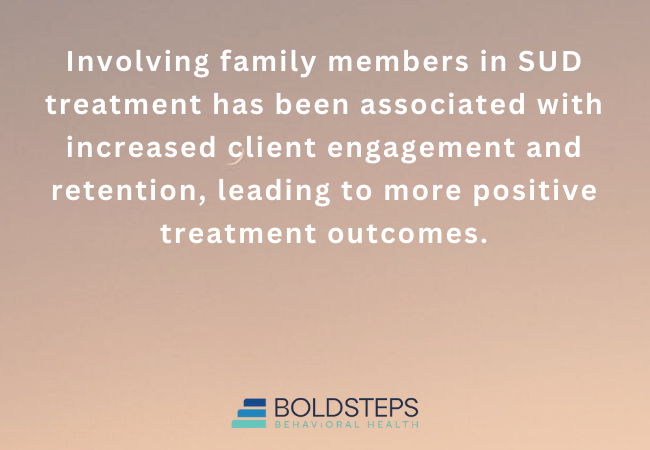Addiction and mental health challenges do not just impact the individual—they affect entire families. The emotional, financial, and psychological burdens that addiction and mental illness place on loved ones can be overwhelming. That’s why family involvement in an Intensive Outpatient Program (IOP) is essential for long-term recovery. A supportive family can provide encouragement, accountability, and stability as an individual navigates the path to sobriety and mental wellness.
At Bold Steps Behavioral Health in New Hampshire, we understand that recovery is stronger when families heal together. Our Intensive Outpatient Program (IOP) is designed to incorporate family support, education, and therapy to create a foundation for lasting recovery.
This article explores:
- How IOP treatment works and why family involvement matters
- Ways families can support their loved one during recovery
- The challenges families face and how to overcome them
- Long-term benefits of family participation in treatment
- How Bold Steps Behavioral Health integrates family support in IOP treatment
What is an Intensive Outpatient Program (IOP)?
An Intensive Outpatient Program (IOP) provides structured therapy and support for individuals recovering from addiction or mental health disorders while allowing them to continue living at home. Unlike inpatient rehab, where individuals reside in a treatment facility, IOP offers flexibility so they can maintain work, school, or family responsibilities.
Key Features of an IOP:
- 3 to 5 days of treatment per week
- Individual therapy, group therapy, and family counseling
- Relapse prevention strategies and mental health support
- Flexible scheduling to accommodate work, school, or family life
- A transitional step between inpatient rehab and independent recovery
At Bold Steps Behavioral Health in New Hampshire, our IOP is customized to each individual’s needs and incorporates family therapy as a key component of the healing process.
The Role of Family in IOP Treatment
Why Family Support is Crucial in Recovery
When families actively participate in the recovery process, it leads to higher success rates and long-term sobriety. Family involvement provides emotional support, reduces relapse risk, and helps individuals develop healthier relationships.
How Family Involvement Supports Recovery:
- Encourages Accountability – Loved ones help individuals stay motivated, focused, and engaged in treatment.
- Strengthens Emotional Support – Family members provide a sense of belonging and reassurance, reducing feelings of loneliness.
- Improves Communication – Therapy helps families learn healthy ways to express emotions, set boundaries, and resolve conflicts.
- Educates Families About Addiction & Mental Health – Many family members misunderstand addiction and mental illness. Education helps reduce stigma and create a more supportive environment.
- Prevents Codependency & Enabling Behaviors – Family therapy teaches how to support a loved one without enabling destructive behaviors.
- Reduces Relapse Risk – A strong family support system provides stability and encouragement, making relapse less likely.
Ways Families Can Support a Loved One in IOP Treatment
1. Participate in Family Therapy Sessions
Family therapy is a core part of many Intensive Outpatient Programs in New Hampshire, including at Bold Steps Behavioral Health. These sessions help repair broken relationships, build trust, and teach families how to best support their loved one.
Family therapy focuses on:
- Understanding how addiction and mental illness affect the entire family
- Learning healthy communication skills and boundary setting
- Developing a strong family support system for long-term recovery
- Addressing past trauma or unresolved conflicts
2. Educate Yourself About Addiction and Mental Health
Families who take the time to understand addiction and mental health disorders can better support their loved one.
Ways to educate yourself include:
- Reading books and articles on addiction and mental health recovery
- Attending Al-Anon or Nar-Anon meetings for support
- Speaking with addiction specialists or therapists
The more informed a family is, the more effective their support will be.
3. Provide Emotional Support (Without Judgment)
Many individuals in recovery feel shame, guilt, or fear of relapse. A judgment-free, supportive environment is crucial.
Ways to offer emotional support:
- Listen without interrupting or criticizing.
- Recognize and celebrate their progress.
- Encourage attendance in therapy and meetings.
4. Create a Sober and Supportive Home Environment
The home environment plays a huge role in maintaining recovery. Families can help by:
- Removing alcohol and drugs from the home.
- Encouraging healthy activities like exercise, hobbies, and mindfulness.
- Supporting the IOP treatment schedule by helping with transportation or childcare.
5. Respect Boundaries & Avoid Enabling
Families must learn to support recovery without enabling addiction.
Enabling behaviors to avoid:
- Making excuses for a loved one’s behavior.
- Providing money that may be used for alcohol or drugs.
- Ignoring signs of relapse.
Instead, families should encourage healthy coping skills and personal responsibility.
Challenges Families Face in Recovery and How to Overcome Them
1. Feelings of Guilt and Blame
Many families blame themselves for a loved one’s addiction or mental illness. However, recovery is about moving forward, not dwelling on past mistakes. Therapy helps families let go of guilt and focus on healing.
2. Frustration Over Slow Progress
Recovery is not a straight path—it takes time. Families should focus on supporting progress rather than expecting perfection.
3. Relapse Concerns
Relapse is a common part of recovery. Families can help by learning the warning signs and having a plan for support.
4. Rebuilding Trust
Trust takes time to rebuild after addiction or mental health struggles. Consistent communication and honesty are key.
The Benefits of Family Involvement in IOP Treatment
- Higher success rates – Individuals with family support are more likely to complete treatment and maintain sobriety.
- Stronger relationships – Therapy heals past wounds and rebuilds connections.
- Improved emotional stability – Families learn healthy ways to handle stress and conflict.
- Better understanding of addiction and mental health – Reducing stigma and misconceptions.
- Long-term relapse prevention – A strong support system reduces stress and relapse risk.
Why Choose Bold Steps Behavioral Health for IOP Treatment?
At Behavioral Health Treatment Center New Hampshire, we believe that true recovery extends beyond the individual—it involves healing families, rebuilding relationships, and fostering a strong support system. Our Intensive Outpatient Program (IOP) is designed to help individuals overcome addiction and mental health challenges with the active participation of their loved ones.
What Makes Our IOP Treatment Different?
- Comprehensive Family Support: We integrate family therapy and education into our programs to ensure that loved ones play a meaningful role in recovery.
- Personalized Care Plans: Every individual receives a customized treatment plan tailored to their unique needs, background, and challenges.
- Flexible Scheduling: Our IOP allows individuals to attend therapy while maintaining work, school, and family responsibilities.
- Expert Clinicians and Therapists: Our team consists of licensed addiction counselors, mental health specialists, and medical professionals who specialize in co-occurring disorders and dual diagnosis treatment.
- Evidence-Based Therapies: We utilize Cognitive Behavioral Therapy (CBT), Dialectical Behavior Therapy (DBT), trauma-informed therapy, and relapse prevention strategies to promote lasting recovery.
- Support Beyond Treatment: Recovery is a lifelong journey. Our continuum of care includes PHP (Partial Hospitalization), Outpatient Programs (OP), Virtual Therapy, and Aftercare Support to ensure long-term success.
If you’re looking for a treatment program that values family involvement, provides expert care, and supports lasting recovery, Bold Steps Behavioral Health is the right choice.
Conclusion
Addiction and mental health challenges can strain even the strongest families, but with the right support, healing is possible. When families are actively involved in treatment, individuals in Intensive Outpatient Programs (IOP) experience greater emotional stability, improved relationships, and a higher chance of long-term recovery.
At Behavioral Health Treatment Center New Hampshire, we are committed to helping families heal together. By providing comprehensive addiction and mental health treatment with a strong focus on family support, we ensure that individuals and their loved ones have the tools needed for a healthier, happier future.
If you or a loved one is struggling with addiction or mental health issues, don’t wait—take the bold step today. Call (603) 915-4223 to learn more about our Intensive Outpatient Program (IOP) and Family Support Services in New Hampshire. Your journey to recovery starts now—let’s take the bold step together.
FAQ on Family Involvement in IOP
Why is family involvement important in IOP treatment?
Family support helps individuals in Intensive Outpatient Programs (IOP) stay motivated, accountable, and emotionally stable. It also improves communication, reduces relapse risk, and strengthens family relationships during the recovery process.
How can family members support a loved one in IOP?
Families can provide support by:
- Attending family therapy sessions.
- Learning about addiction and mental health disorders.
- Encouraging treatment participation and progress.
- Creating a sober and supportive home environment.
- Avoiding enabling behaviors and setting healthy boundaries.
What role does family therapy play in addiction and mental health recovery?
Family therapy helps improve communication, rebuild trust, and address conflicts related to addiction and mental health challenges. It teaches healthy coping skills for both the recovering individual and their loved ones.
What are common challenges families face when supporting a loved one in IOP?
Some challenges include:
- Feelings of guilt or blame.
- Frustration over slow progress.
- Concerns about relapse.
- Difficulty setting boundaries.
- Rebuilding trust after addiction-related behaviors.
Therapists help families navigate these issues by providing guidance and support throughout the treatment process.
How does family involvement reduce the risk of relapse?
A strong support system:
- Provides emotional encouragement.
- Helps identify and address relapse triggers.
- Promotes healthy communication instead of isolation.
- Reinforces positive lifestyle changes.
Studies show that individuals with strong family support are more likely to stay sober and maintain long-term mental health stability.
What if my loved one refuses family involvement in their treatment?
Some individuals may feel uncomfortable including their family in treatment. However, family members can still:
- Attend educational workshops to understand addiction and recovery.
- Seek their own support groups (such as Al-Anon or Nar-Anon).
- Encourage open communication and respect personal boundaries.



